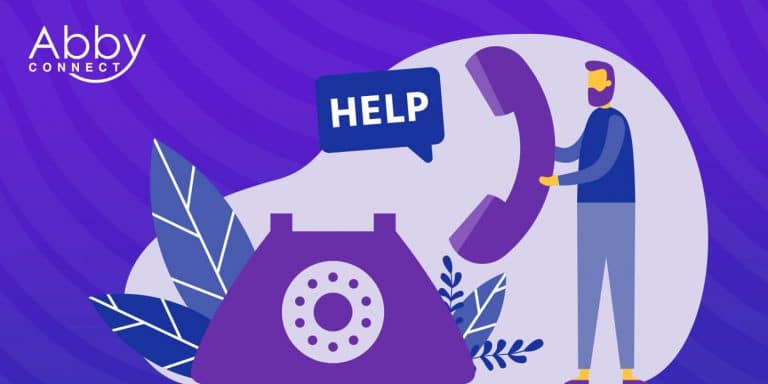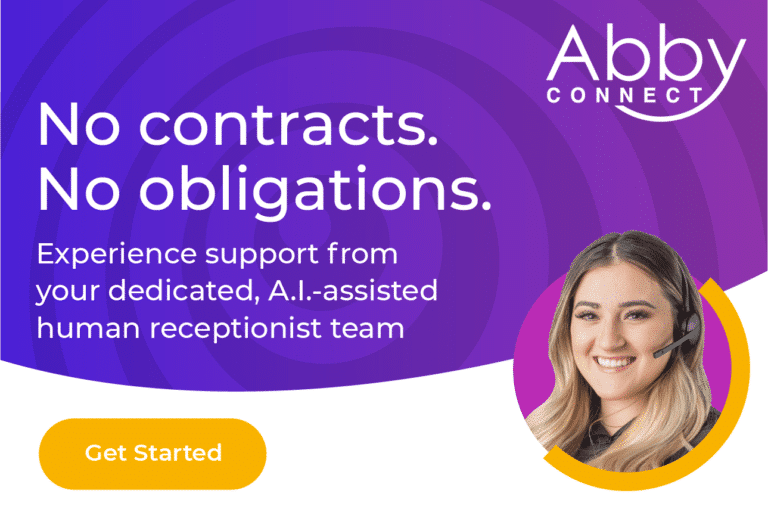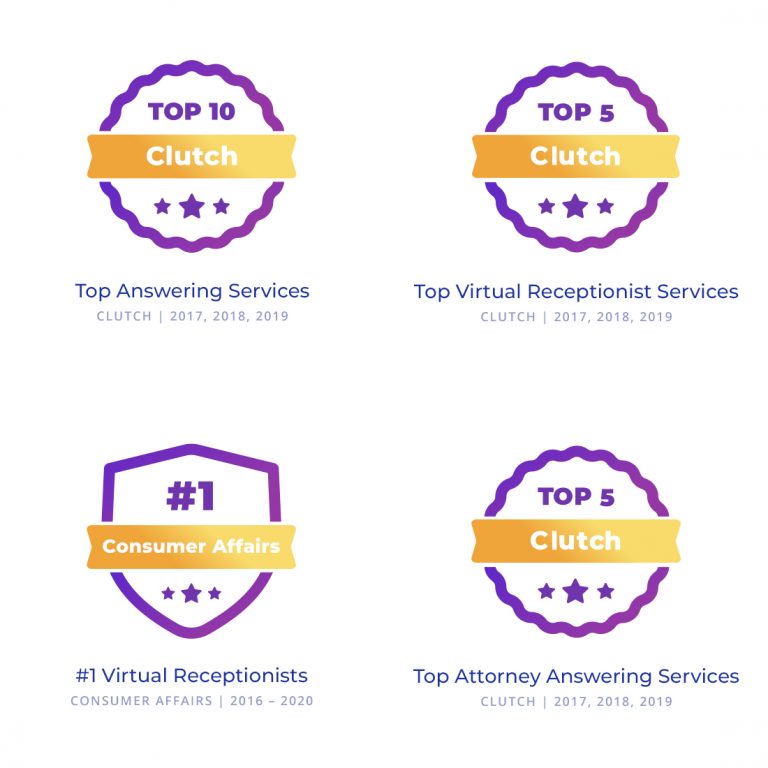
The cost of a missed call can be high for small businesses, and returning those calls can feel daunting and confusing. How can you do it well?
You’re not alone in your uncertainty. Research shows that 30-50% of sales go to the vendor that responds first, so there can be a lot riding on a return call. Adding to the pressure is the fact that missed calls are more common than ever, and 80+% of callers who don’t reach you on the first try won’t call back. This means every missed phone call and every return call is a potential lost opportunity. It’s clear that answering phone calls as they come in is essential, and returning missed calls is crucial and must be done effectively.
Why Missed Calls Matter
Picture this: a potential customer calls your business, eager to learn more about your services. They’re greeted by endless ringing or a voicemail box. Frustrated, they hang up and move on to your competitor. Just like that, you’ve lost a potential sale.
Missed calls can have a ripple effect on your business. Not only do you lose the opportunity to convert a lead, but you also risk damaging your reputation. Customers expect quick responses. If you’re not there to answer their call, they may perceive your business as unresponsive, unprofessional, or overwhelmed.
Missed phone calls impact your bottom line. 80% of callers sent to voicemail don’t leave messages because they don’t think they’ll even be heard. Every one of those is an opportunity to convert curiosity into clients.
Wondering how much missed calls are costing your business? Our free ebook can help!
Your Best Callback Strategy
Now that we’ve established the importance of returning missed calls let’s discuss how to prioritize your callback strategy. Not all missed calls are created equal, and it’s essential to have a system in place to ensure you’re addressing the most critical calls first.
Here’s a simple, step-by-step process for prioritizing your callbacks:
- Check for voicemails often. Note if messages are from known clients or potential new customers first. Existing clients are people who are already invested in your business and may have urgent needs. Their satisfaction and return business matters.
- Look for missed phone calls from numbers that have called multiple times. Even if they haven’t left a voicemail, persistence suggests they have something important to discuss and are willing to go elsewhere.
- Return any calls from unknown numbers or potential new customers that left a voicemail. These could be new leads or customers who want to commit to a service or have questions about your products or services.
- Finally, address any remaining missed calls. You don’t have to call back every missed call, but it’s important to review all your communications. Even sales calls or donation requests could become customers down the road. Every call is a chance to make a connection.
This prioritization strategy can ensure that you’re addressing the most urgent and important calls first while still giving every missed call the attention it deserves and bolstering your business.
The Art of the Return Call
Returning a missed phone call is more than just dialing a number; it’s an opportunity to showcase your professionalism, empathy, and commitment to customer service.
Remember to use another context when checking voicemails. If a caller leaves a message, take a moment to listen carefully and jot down any key points or questions they raise so you don’t have to repeat yourself. This will help you prepare for the conversation, have answers ready, and demonstrate that you value their time and concerns.
Always begin by apologizing for the missed call. A simple, sincere apology can go a long way in diffusing any frustration by setting a positive tone and showing that you value their time and interest. A simple: “I’m sorry I missed your call earlier. I’m happy to answer your questions.” allows the call to move forward and assures them you have the information they are seeking.
As the conversation progresses, listen actively. Give the caller your full attention, and avoid interrupting or rushing them. Use verbal cues, such as “I see” or “That makes sense,” to show that you’re engaged and understanding.
Be prepared with information to guide the conversation toward meeting their needs and answering their questions. Being too quiet or making them do all of the talking puts the labor on them, setting the tone of what it could be like to work with you again in the future.
Finally, if you can’t fully resolve the caller’s issue or inquiry on the spot, offer alternative communication channels. This could include scheduling a follow-up call, providing an email address for further questions, or directing them to a relevant resource on your website.
Preventing Missed Calls
While knowing how to return calls effectively is crucial, it’s way better to prevent missed phone calls in the first place. 75 percent of callers will not leave a voicemail, and about 85 percent of callers who don’t reach you on the first call will not call back. Instead, they will call your competitors. Here are a few strategies to consider:
- Staff adequately or have a live virtual receptionist service: Ensure you have enough team members to handle your call volume, especially during peak hours. Partnering with a professional answering service, like Abby Connect, ensures that a friendly, knowledgeable receptionist answers every call.
- Implement a call-forwarding system: If you’re unable to answer a call, forward it to another team member or department who can assist.
- Offer self-service options: Provide FAQs, knowledge bases, or chatbots on your website to help customers find answers to common questions without needing to call.
These strategies can reduce the number of missed calls and improve your overall customer experience, creating new clients, happy return customers, and a tip-top reputation.
Creating Confident Connections
Missed phone calls are sometimes an inevitable part of running a business, but how you handle them can make all the difference for your business and your client base. You can turn missed opportunities into loyal, long-standing customers by prioritizing your callbacks, mastering the art of the return call, and implementing strategies to prevent missed calls.
Every phone call is a chance to build a relationship, solve a problem, or create a new client. Don’t let missed calls slip through the cracks; make them a priority to watch your business thrive.
If you’re struggling to keep up with your call volume, partner with a dedicated Abby Connect virtual receptionist team. Our team of highly trained, live virtual receptionists is here to help you capture every opportunity, provide an exceptional customer experience, and delight your callers with unmatched communication and service.


3 responses to “How to Return a Missed Phone Call”